Year of the pandemic comes to an end with 1.8 million lives lost
The COVID-19 pandemic will have claimed nearly 1.8 million lives in 2020 and infected about 82 million people.
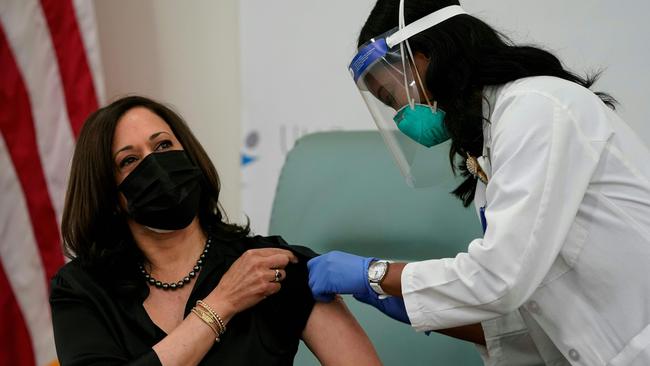
The COVID-19 pandemic will have claimed nearly 1.8 million lives in 2020 and infected about 82 million people as the virus continues to spread across the globe, with the 19.5 million cases in the US now equal to the total population of NSW, Victoria and Queensland combined.
A worrying new variant of COVID-19 was detected for the first time in the US and Latin America on Tuesday as president-elect Joe Biden vowed to ramp up a fledgling vaccination drive.
More than 338,000 Americans have died from the virus — about the same number of people as the entire population of the Sunshine Coast in Queensland — while the new strain helped push infections in Britain this week to a daily record of more than 53,000.
South Africa, which has recorded more than 300 cases of the new variant, is also the first African nation to hit one million cases, while deaths in Latin America have topped 500,000, with Brazil making up more than a third of the fatalities and Mexico more than a quarter.
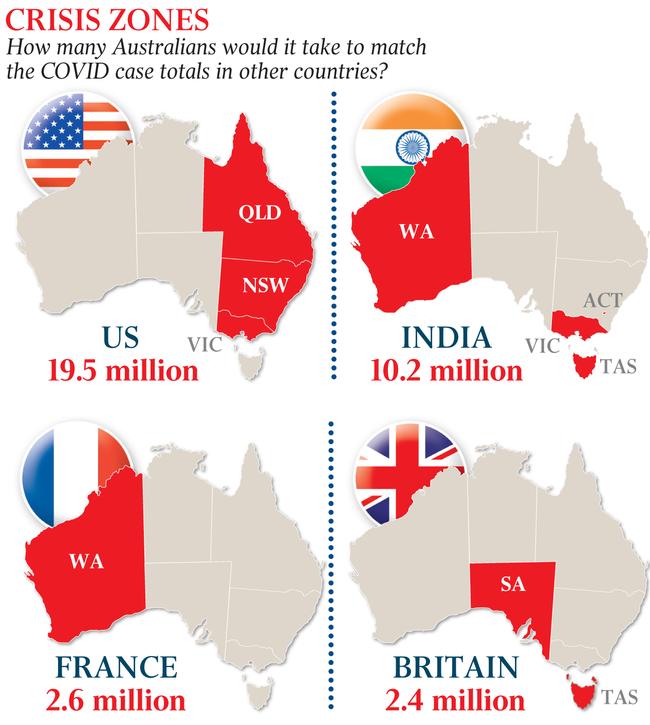
The EU’s health agency is warning that the new strain of the virus carries a high risk for more hospitalisations and deaths because it spreads more easily. Total cases in Britain number 2.33 million — about the same number as the combined populations of South Australia and Tasmania.
Britain on Wednesday became the first country to approve the coronavirus vaccine developed by Oxford University and AstraZeneca after it was recommended by the Medicines and Healthcare Products Regulatory Agency. The Australian government has committed to buying more than 30 million doses of that vaccine, expected to be cheaper than alternatives.
Since the outbreak of the virus, Australia has had 909 deaths and experienced 28,350 cases. There are currently 189 active cases in the country, including 142 in NSW following an outbreak on Sydney’s northern beaches, with a new cluster emerging in the inner-west suburb of Croydon, the source of which has yet to be identified.

Paul Kelly, the commonwealth’s Chief Medical Officer, said only 19 people were in hospitals in Australia in relation to COVID-19 illnesses and no one was in ICU. He said it was a very different situation from that in many other countries. “The intensive care units in California, for example, are completely full and very much overwhelmed,” he said.
The Rocky Mountain state of Colorado recorded what is believed to be the first case of the new strain of the virus in the US. Governor Jared Polis said a man in his 20s in Elbert County near Denver was infected with the variant, known as B.1.1.7.
Mr Biden, after receiving a briefing from experts, warned that the COVID situation might not ease until “well into March”, with hospitalisations in the US running at more than 121,000 as of Monday. He called the vaccination rollout the “greatest operational challenge we’ve ever faced”.
The Trump administration had predicted 20 million Americans would be vaccinated by the end of December. Only 2.1m, including vice-president-elect Kamala Harris on Wednesday, have received the first shot of the vaccine, according to the Centres for Disease Control and Prevention.
Britain’s government also came under pressure this week to tighten restrictions as it announced a record 24-hour high of 53,135 new infections.
Samantha Batt-Rawden, a critical care doctor, said medical staff were at breaking point.
“We are incredibly thin on the ground,” she said in a post on Twitter.
“NHS (National Health Service) staff have not been prioritised for the vaccine and are going off sick in droves with the new strain.”
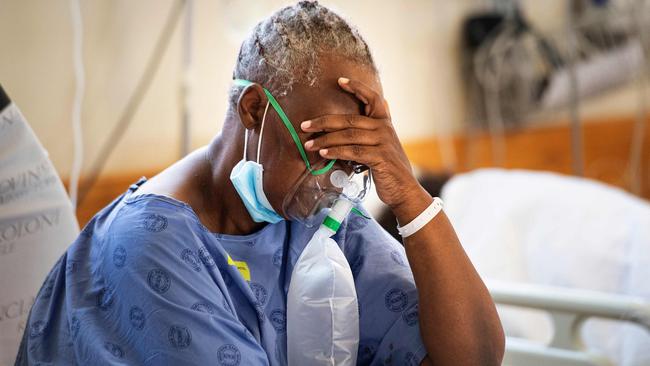
The South African government banned the sale of alcohol and made masks compulsory in public in response to soaring numbers of infections. President Cyril Ramaphosa said: “We have let down our guard, and unfortunately we are now paying the price.”
He blamed the new strain and an “extreme lack of vigilance over the holiday period” for the spike.
Chile on Tuesday became the first Latin American country to detect the new strain, in a woman who returned from Madrid after travelling to Britain and Dubai.
Brazil has recorded more than 7.5 million cases — the equivalent of the combined populations of greater Melbourne and greater Brisbane — and more than 192,000 deaths.
The new strain was also detected in the United Arab Emirates and India, which has the second-biggest caseload in the world.
India will end 2020 with more than 10.2 million cases — the equivalent of the combined populations of Victoria, WA, Tasmania and the ACT — and more than 148,000 deaths. Concerning trends have also been increasing in other locations, with South Korea — hailed for early success — logging its highest daily death toll since the start of the pandemic.
There are now 17,459 active cases in South Korea.
More Coverage
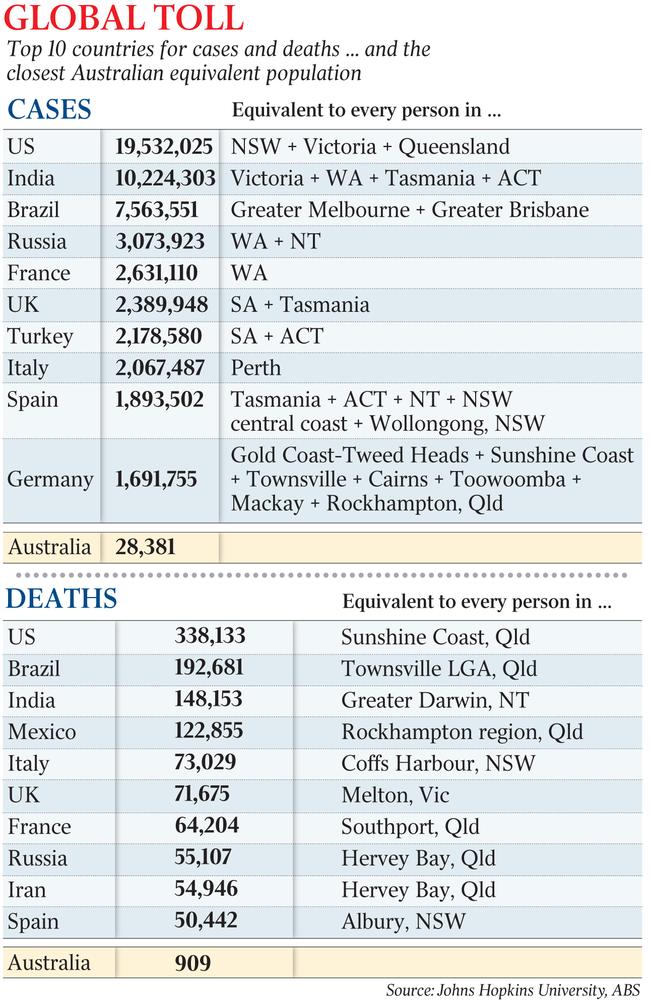




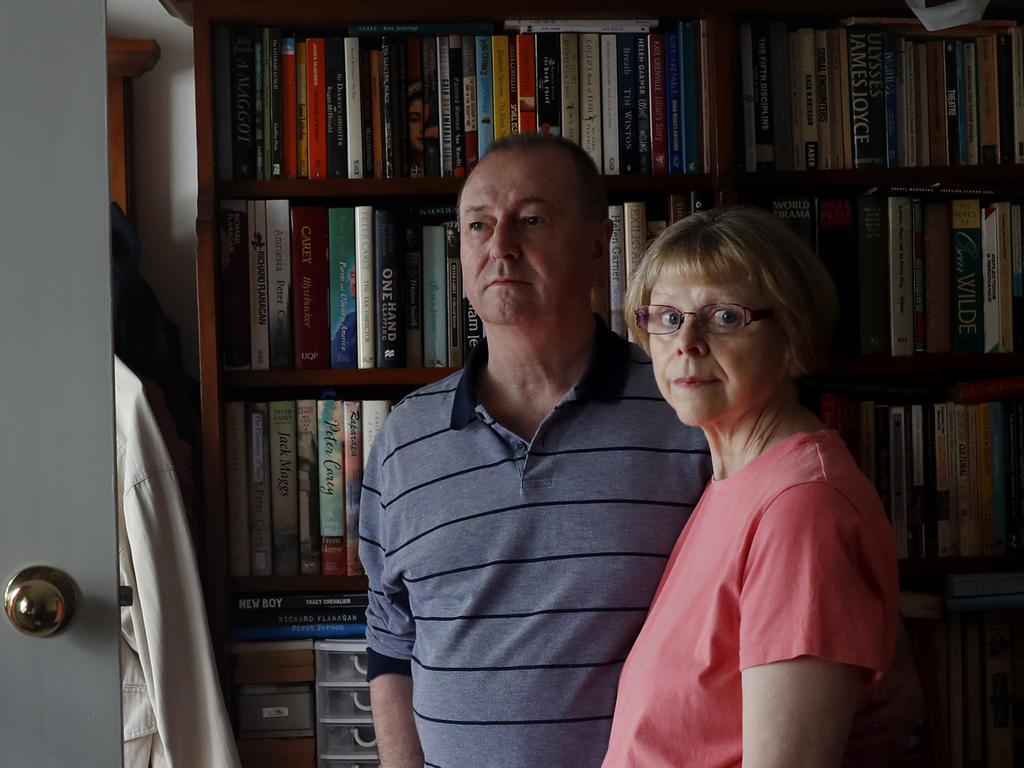


To join the conversation, please log in. Don't have an account? Register
Join the conversation, you are commenting as Logout